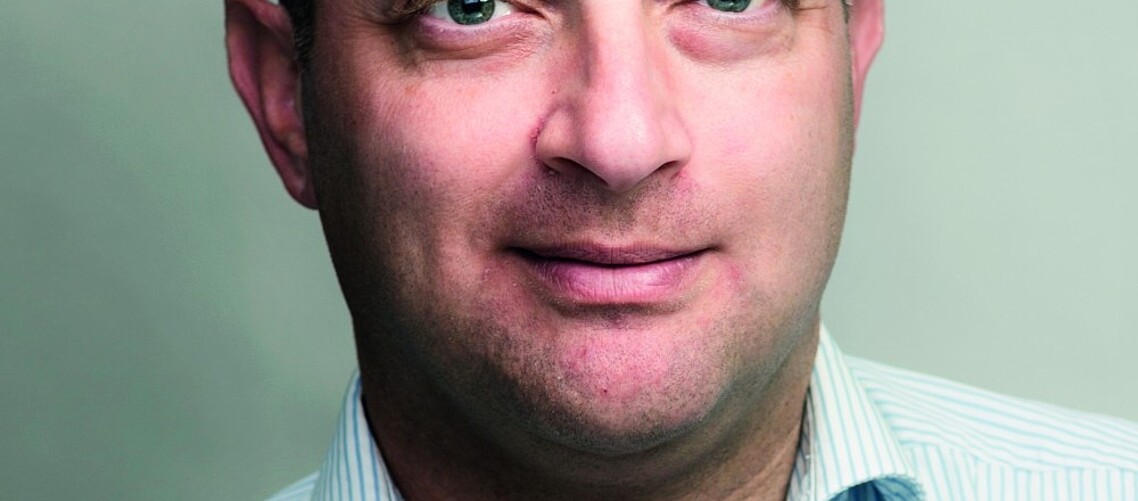Accountants are often viewed as number crunchers whose focus is on a company’s annual statements. But in the past they were also trusted members of the business community to whom others turned for advice. Dutch start-up Manifesto’s aim is to restore that role by building an accountancy and business coaching network for entrepreneurs that is relevant to the 21st century new economy.
Simplifying bookkeeping
Company founder and RSM alumnus Erik Friedeberg says the approach is completely different to others in the sector. ‘Everything you think about accounting – people with computers making annual statements – is important, but it’s old-fashioned. The figures are too late to give effective guidance to your company, and it’s detached from entrepreneurship,’ he says. ‘We’re about helping people realise their dreams. Entrepreneurs are so busy they sometimes forget where their strengths lie. We start where normal accountants end.’
Erik’s inspiration came from his own experiences after graduating from RSM in 1990. ‘When I studied the goal was as much profit as possible, but things are changing,’ he points out. ‘I’ve been an entrepreneur for 15 years and coached many people with their own business. But they often had financial difficulties because they were so busy doing daily things they forgot about their dreams. They had accountants, but were using figures they didn’t understand.’
‘Money and meaning’
Erik’s plan was to remove the pain by simplifying and digitising bookkeeping. ‘We started an external admin factory,’ he explains. ‘Entrepreneurs just have to upload their invoices and everything else happens automatically. They don’t have to do basic bookkeeping, and can see in real-time how their business is doing.’
Moreover, since – in Erik’s words – the company is about both ‘money and meaning,’ he wanted a ‘personal scoreboard’ for his clients so they can monitor their performance against their personal, business and societal goals. ‘We searched the world for such a tool, but it didn’t exist,’ he says. ‘So we’re developing it ourselves, for Manifesto’s and other companies’ clients. You can see immediately by colour how an entrepreneur is scoring on their goals. If a goal turns red, the entrepreneur needs coaching or guidance.’
The new economy
According to Erik, the company’s most important aspect is that it is run by and for socially minded entrepreneurs. ‘We only want clients who are in the “new economy” and/or want personal and business growth, not those focused on maximising profit. In the new economy people help each other to have more impact, so our clients are also members of the Manifesto co-operative who help to shape company policy. Of course we have costs, but all our clients pay the same fixed amount,’ he adds.
Manifesto’s social responsibilities extend beyond its members. Any profit is used to fund local social projects and projects to foster entrepreneurship. It’s up to members and clients how the money gets spent.
Keeping it real
RSM played a pivotal role in Erik’s understanding of what would be needed to make this socially oriented structure a success. ‘The school inspired me to take a multi-disciplinary way of looking at everything. If you want to change the world you have many angles to approach it from,’ he says. ‘RSM taught me that this was how you solved problems, and it’s a philosophy I’ve used for more than 20 years.’
Erik admits that Manifesto’s approach doesn’t always go down well. ‘We are so new and at the forefront of development that some individuals find it hard to believe what we do is really possible. We’ve had lots of positive feedback from those who’ve got to know us. But when we started we received complaints after two days because people didn’t think we were real accountants. That changed when Rabobank mentioned us as an example of the direction in which the accountancy profession should develop in future.’
Ambitious goals
With a wife and three children, Erik says balancing work and home life can be tough. ‘At the moment we’re a team of three or four so it’s difficult. But what I’m doing fits well with my personal life and my family are very supportive. And when we scale up and grow our team, the balance will improve.’
In order to scale up, Manifesto is currently crowdfunding. ‘It’s a challenge,’ Erik says. ‘As we are both a social and financial company we pay a low interest rate compared to many start-ups, which makes it harder to find investors.’ Nevertheless, Manifesto is sticking with its ambitious goal of having around thirty offices in the Netherlands within three to five years, and expanding abroad.
Helping other entrepreneurs
Erik’s underlying ambition is helping other entrepreneurs. ‘I believe that by playing to your strengths and doing the right thing for society your company will succeed,’ he says. He also wants to become a role model for accountancy, by showing the sector it needs to focus on goals not maximising profits. ‘Their focus is too negative,’ he continues. ‘For us it’s the other way around. We want to inspire others and prove you can do accountancy from the heart. Maybe in 10 years’ time it will all be done this way.’
This article was first published in RSM Outlook winter 2016 – RSM’s alumni and corporate relations magazine. You can download RSM Outlook here.
